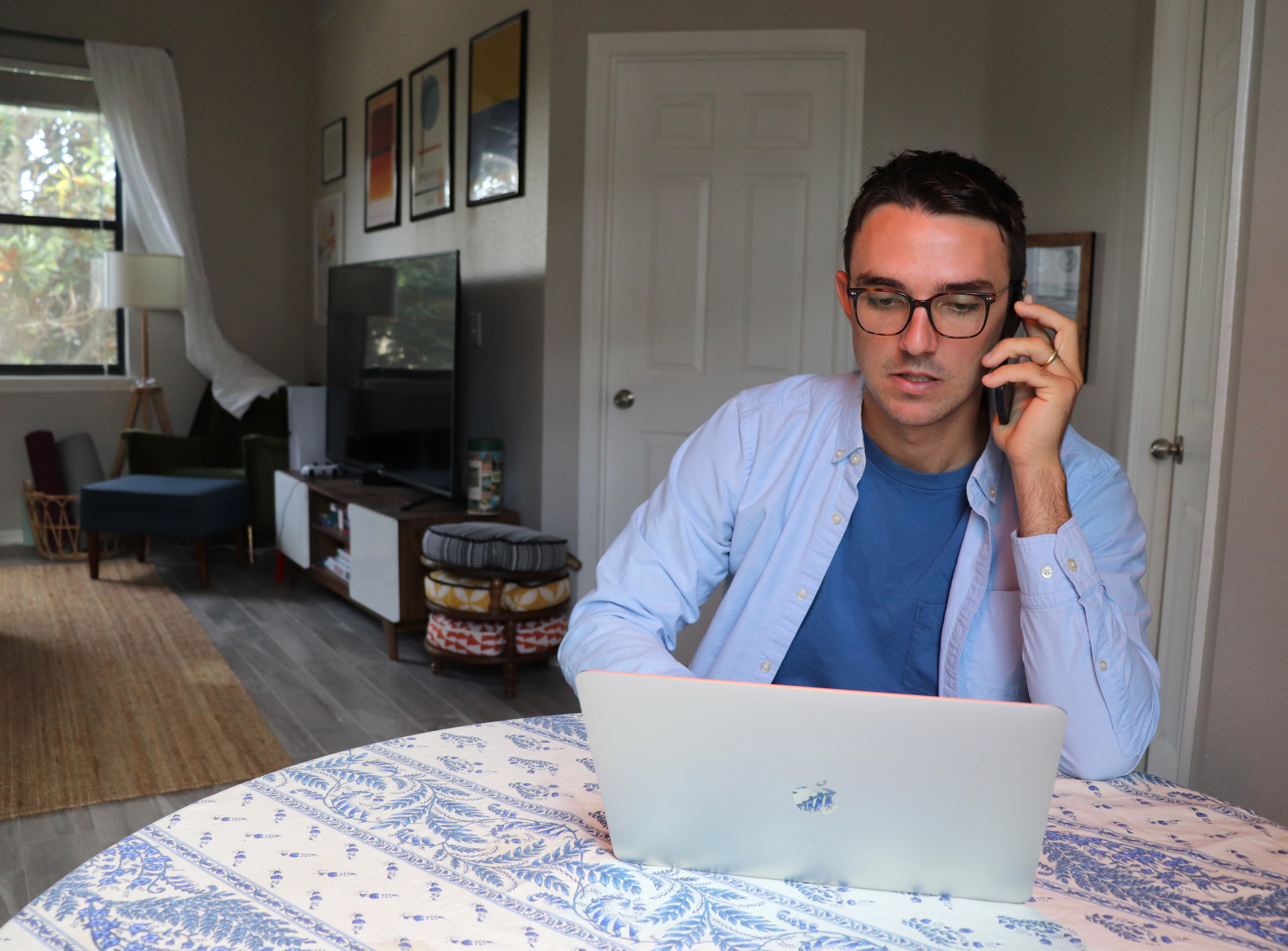Two-year anniversary of working from home

People are now comfortable working remotely and some question why they should commute to offices to do a job they can perform just as effectively from home. Photo by May Gauthier on Unsplash
In summary
- It’s been two years since Swinburne staff and students were told to go home to work and study because of the COVID-19 pandemic
- Many people worked from home until Victorian Government recommendations were lifted in late February 2022
- Many workplaces are now offering of hybrid work arrangements which are a mix of in-person and remote work
It’s been two years since Swinburne staff and students were told to go home to work and study because of the COVID-19 pandemic. At the time many thought it would be temporary, lasting maybe a few weeks, after which life would be back to ‘normal’.
But as it happened, after the Victorian Government’s 31 March 2020 mandate, “if you can work from home, you must work from home,” we yo-yo-ed in an out of six lockdowns and most staff members worked from home until the government recommendations were lifted in late February 2022.
Swinburne Business School researchers Professor Anne Bardoel and Associate Professor John Hopkins say a new normal is taking shape in ways we could not have imagined in March 2020. People are now comfortable working remotely and some question why they should commute to offices to do a job they can perform just as effectively from home.
“The sudden emergence of the COVID-19 pandemic in early 2020 resulted globally in large numbers of people having to work from home (WFH), many for the first time, and often at very short notice,” says Professor Bardoel who conducts research in the work and family/life area.
Professor Bardoel says this shift was largely involuntary and large sections of society suddenly found themselves relying exclusively on virtual communication media to complete collaborative tasks.
“Prior to the pandemic, working from home was taken up by relatively few workers (often women and people working part time). When the pandemic began in Australia, the share of employees working some of their time from home skyrocketed from around 8 per cent to about 40 per cent.
One of the biggest changes to workplaces is the offering of hybrid work arrangements which are a mix of in-person and remote work.
“Surveys around the world indicate that many people want hybrid work arrangements to continue as we move through the pandemic. However, the strong workforce demand for hybrid working means employers need to re-engage with flexible work arrangements and consider how to design jobs and workspaces for the future,” Professor Bardoel says.
Workplace flexibility
Associate Professor Hopkins agrees. “The last two years have been a huge catalyst for the way we think about workplace flexibility. Prior to the pandemic, workplace flexibility was often no more than being able to come in a bit late if we had a dentist’s appointment, but now many of us have real choice over where and when we conduct our work tasks.
“We have adopted and mastered new technologies, which enable many of our tasks to be performed from anywhere, but more importantly there is now an acceptance from senior management that we don't all need to be physically sat in front of our office desks for 40+ hours per week, in order to get our work done.
“Now that all state government working from home advice has been lifted, we will learn just how much has really changed, and whether the increased levels of flexibility we have become accustomed to will remain or not.”
-
Media Enquiries
Related articles
-

- University
The future of fashion: Swinburne launches groundbreaking tech-focused fashion course
Swinburne University of Technology is fusing high tech and high fashion to launch a new forward-thinking Bachelor of Design (Fashion).
Thursday 25 July 2024 -

- University
Swinburne achieves first Cygnet Award through SAGE Athena Swan program
Swinburne has achieved its first Science in Australia Gender Equity (SAGE) Athena Swan Cygnet Award.
Monday 01 July 2024 -

- University
Future of National Institute of Circus Arts (NICA) secured
NICA will transition from Swinburne to the Australian College of the Arts (Collarts), as part of a new agreement that secures the future of circus arts in Australia.
Monday 22 July 2024 -

- University
Swinburne among world’s top 15 universities for scientific impact
Swinburne has been ranked in the top 15 universities in the world for scientific impact across all disciplines, based on the proportion of a university’s papers that belong to the top 1 per cent most cited in the 2024 CWTS Leiden Rankings.
Friday 19 July 2024 -

- University
Opinion: The missed opportunity in the Australian Universities Accord
The Federal Government’s announcement of the Australian Universities Accord Implementation Advisory Committee is welcome, but the glaring omission of dual sector representation is a missed opportunity.
Monday 17 June 2024

